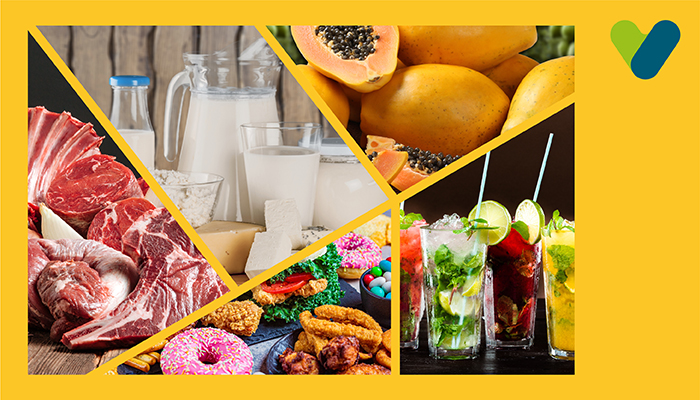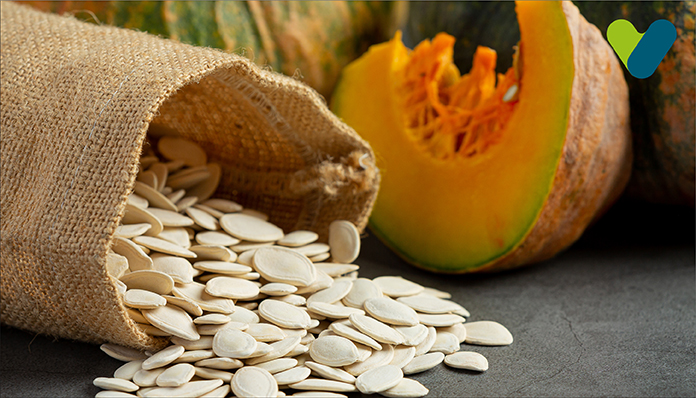Foods to Avoid During Pregnancy.
Mothers want what’s best for their kids. Mothers who are not willing to compromise on their children’s health need to start from the early days of their pregnancy. Planning the nutrition ahead of time, with doctor-approved diets and suggested supplements, ensures the safe and wholesome development of your baby’s health and growth during the pregnancy period. The pregnant mother’s meals should support the nutritional needs of two people. The average-sized pregnant woman needs to be supplied with 1800 calories per day during her 1st trimester, 2200 calories per day during her 2nd trimester, and 2400 calories per day during her 3rd trimester. While there are lists of wholesome food that women are suggested during pregnancy, there always remains doubt and uncertainty on what kind of foods to avoid during pregnancy.Here’s a list of the common categories of foods to avoid in pregnancy and why:
1. Raw/uncooked meat and fish –
Infection-causing parasites and bacteria like salmonella and listeria are commonly found in raw meat, fish, eggs, milk, and other animal products. They can cause severe digestive infections as well as ‘listeriosis’ which affects the baby. ‘Toxoplasmosis’ is another possible infection caused by parasites that can be found in untreated raw meat. Dishes like half-boiled eggs, shakshuka, sushi, egg ramen, charcuterie boards, rare steak, and caviar are served raw, making them foods to not eat during pregnancy.
2. Processed food –
All junk food and packaged ready-made meals like ramen, noodles, microwave dinners, popcorn, and processed meat occupy the top listings of foods to avoid during pregnancy. To maintain a long shelf-life, all packaged edibles like cakes, biscuits, chips, and other snackable junk food are likely to contain preservatives, which are not suitable for an average human’s health. During pregnancy, the risk is higher as the development of the baby is also affected.
3. Unpasteurized dairy products –
Cheese varieties like brie, camembert, gorgonzola, rime, and other soft cheeses are nurtured for mold development. They contain high levels of listeria, salmonella, e.coli, and campylobacter, which can cause ‘listeriosis.’ Hard cheeses like cheddar and mozzarella, parmesan, and mascarpone are made from pasteurized milk, making them less likely to have harmful bacteria. ‘Listeriosis’ affects the fetus and can be lethal, the worst-case scenario being still-born and major defects upon birth and infection of the fetus. Always boil or pasteurize your milk before consumption during pregnancy.
4. Raw sprouts –
Raw sprouts are allowed a humid atmosphere to become edible. Unfortunately, this also provides the perfect breeding ground for deadly bacteria that can be fatal during pregnancy. It is better to eat cooked, or steamed versions of the sprouts rather than the overnight soaked versions, especially during pregnancy.
5. High mercury content fish and organ meat –
Liver and blood-based dishes are on the top foods to not eat during pregnancy Because these foods become rich animal meat sources of vitamin A which are not recommended for the baby.
Mercury is a highly toxic substance found in polluted waters and can be found in trace amounts in fish. Certain fish varieties are exposed to more mercury content than others and come under foods to avoid pregnancy. Some high-mercury content fish are shark, swordfish, mackerel, tuna, marling, and roughy. However, some fish are safe to consume during pregnancy.
Beverages and Drinks to Avoid During Pregnancy –
Expecting mothers need to remind themselves to stay hydrated during pregnancy, as their bodies require more fluids than usual. Proper hydration aids in the amniotic fluid build-up, maintain blood health and body temperature, tissue formation, and helps wash out toxins. However, as much importance is given to drinking water and other energizing drinks and beverages to avoid during pregnancy.Here are a few examples of beverages that women need to stay clear of during their pregnancy:
1. Alcohol –
FAS or fetal alcohol syndrome is a fatal condition that can lead to abnormalities in fetal formation, miscarriage, premature birth, and still-born conditions. Hence alcohol is a compulsorily avoided beverage during pregnancy.
2. Aerated drinks –
Aerated drinks contain high amounts of sugar, caffeine, preservatives, artificial coloring, and carbonated water, all of which are not safe for the mother or child during pregnancy. It can lead to digestive issues, ulcers, high blood pressure, and sometimes large amounts can cause even miscarriage. Aerated drinks, sodas, tinned drinks, energy-boosting drinks are included in this list.
3. Caffeine-related products –
The pregnant woman is allowed 200mg of caffeine consumption per day. Caffeine is found in chocolates, coffee, packaged drinks, energy bars, tea, and chewing gum. Women need to keep their caffeine consumption in check during pregnancy as it can lead to complications in pregnancy.
4. Artificial coloring/flavoring/sweeteners –
These are chemical-based substances that are artificially created in labs. Each artificial enhancer has its list of side effects, which often include a disclaimer for pregnant women. Therefore, it is better to avoid all synthetic food during pregnancy.
5. Green tea –
The beverage is highly beneficial during standard times, boosting metabolic activities. But some doctors suggest that sensitive women avoid green tea during pregnancy, as their metabolism is already exhaustively high, and additional boosts from green tea may lead to complications.
Fruits & Vegetables to Avoid During Pregnancy –
Though fruits and vegetables are a highly suggested and must-have factor in every individual’s meal, especially during pregnancy, there exists a stigma around some fruits and vegetables.Some of the fruits and vegetables to avoid during pregnancy are as follows:
1. Papaya –
Unripe papaya has latex secretions that are known for inducing contractions. Consuming too much papaya in the earlier stages of pregnancy can lead to premature birth, risking the lives of both mother and child. On the other hand, it is a rich source of iron and vitamins. Hence it can be consumed in the ripe stage in mindful quantities.
2. Pineapple –
Papaya contains bromelain, among other enzymes that cause irritability and indigestion for some women. When consumed in higher quantities, enzymes in pineapple can affect the cervix lining leading to preterm labor, miscarriage, and other complications.
3. Grapes –
These are known for increasing body temperature and metabolism, which can cause complications in pregnancy.
Conclusion –
The internet plays host to all kinds of information, both authentic and unauthorized. Find the most reliable sources and always consult with your doctor before following the internet’s suggestions. Any discomfort or abnormalities need to be reported to the doctor immediately. Eliminating foodstuffs that are likely to cause allergic reactions or negatively impact the mother’s digestion should be actively avoided. Seeking to satisfy cravings while carefully abiding by healthy limitations is a habit that every expecting mother needs to practice. Foods that once were part of the mother’s routine before their pregnancy may not necessarily have the same reaction from the same woman while she is pregnant.Explore various healthy alternatives that support the health of the mother and child. Bask in the entire experience of pregnancy and motherhood through wholesome, nutritious food, try out new healthy food habits and incorporate only the best nutrition options for a healthy pregnancy.


